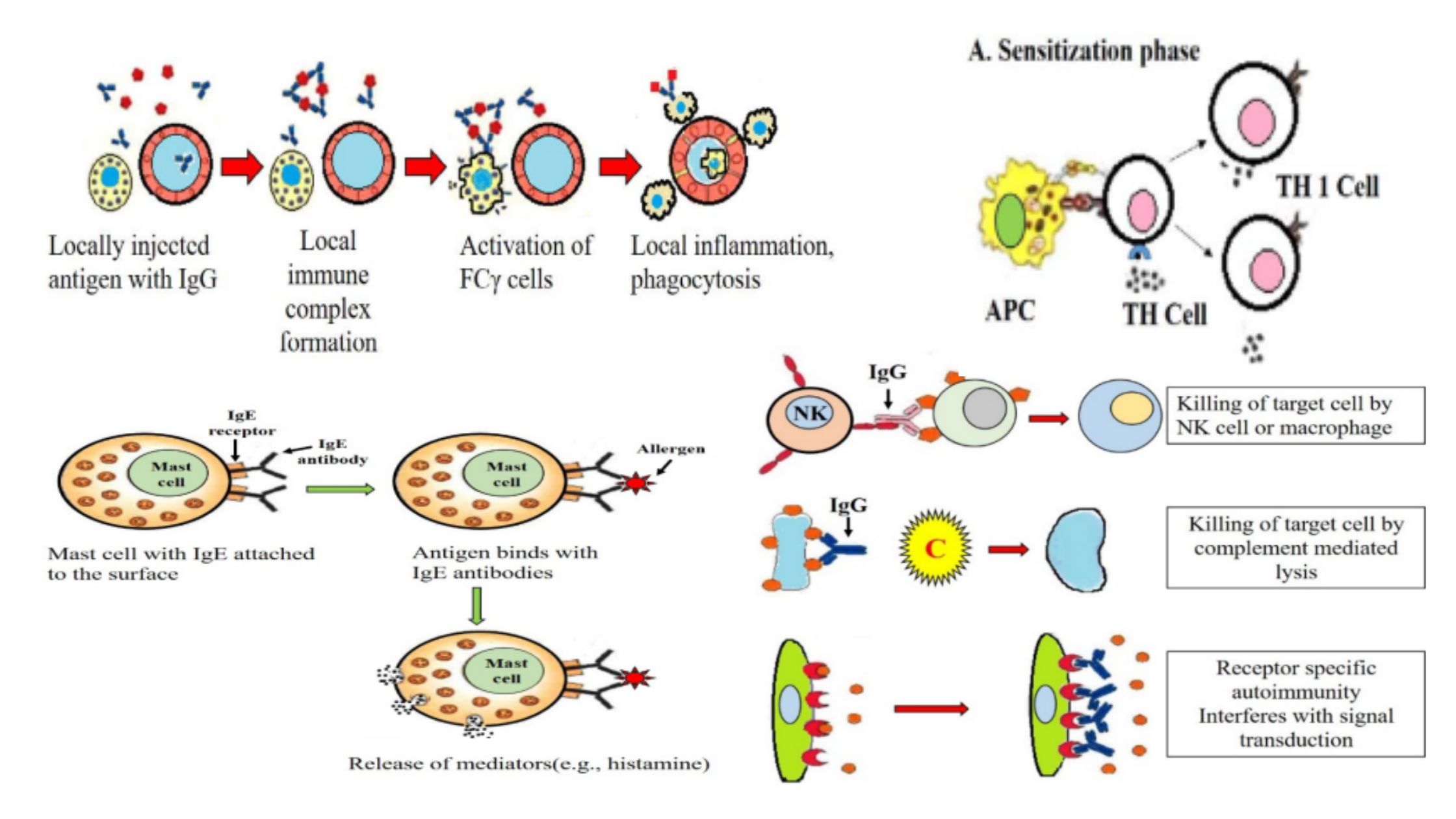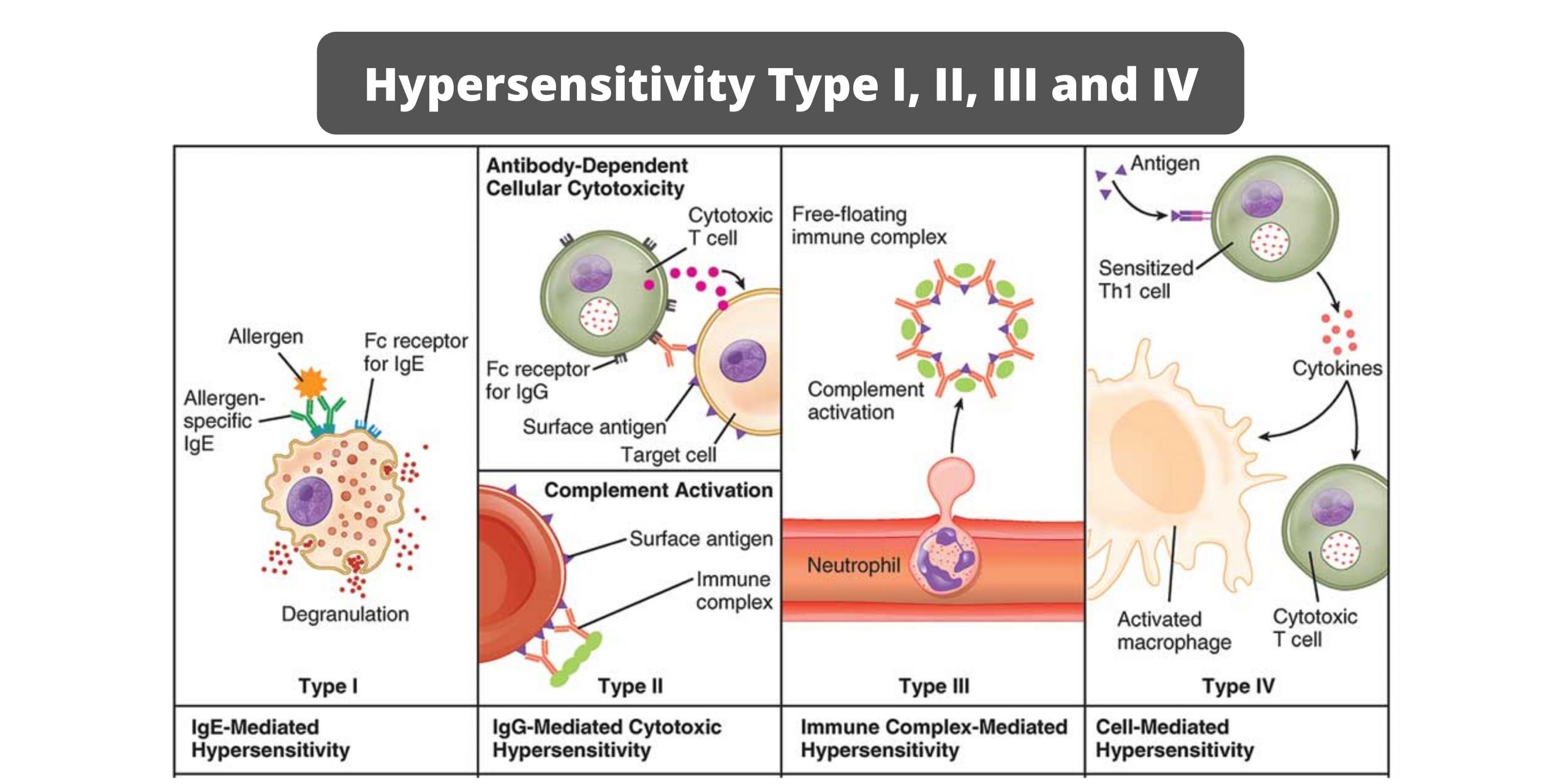Hypersensitivity – Definition, Types, Mechanisms, Examples
What is Hypersensitivity? Definition of Hypersensitivity Advertisements Hypersensitivity is an abnormal and exaggerated response of the immune system to a substance (antigen) that is usually harmless. It can lead to allergic reactions and immune-related diseases. Causes Of Hypersensitivity Diseases Hypersensitivity is caused by various immune responses that can be triggered by different types of antigens. … Read more


